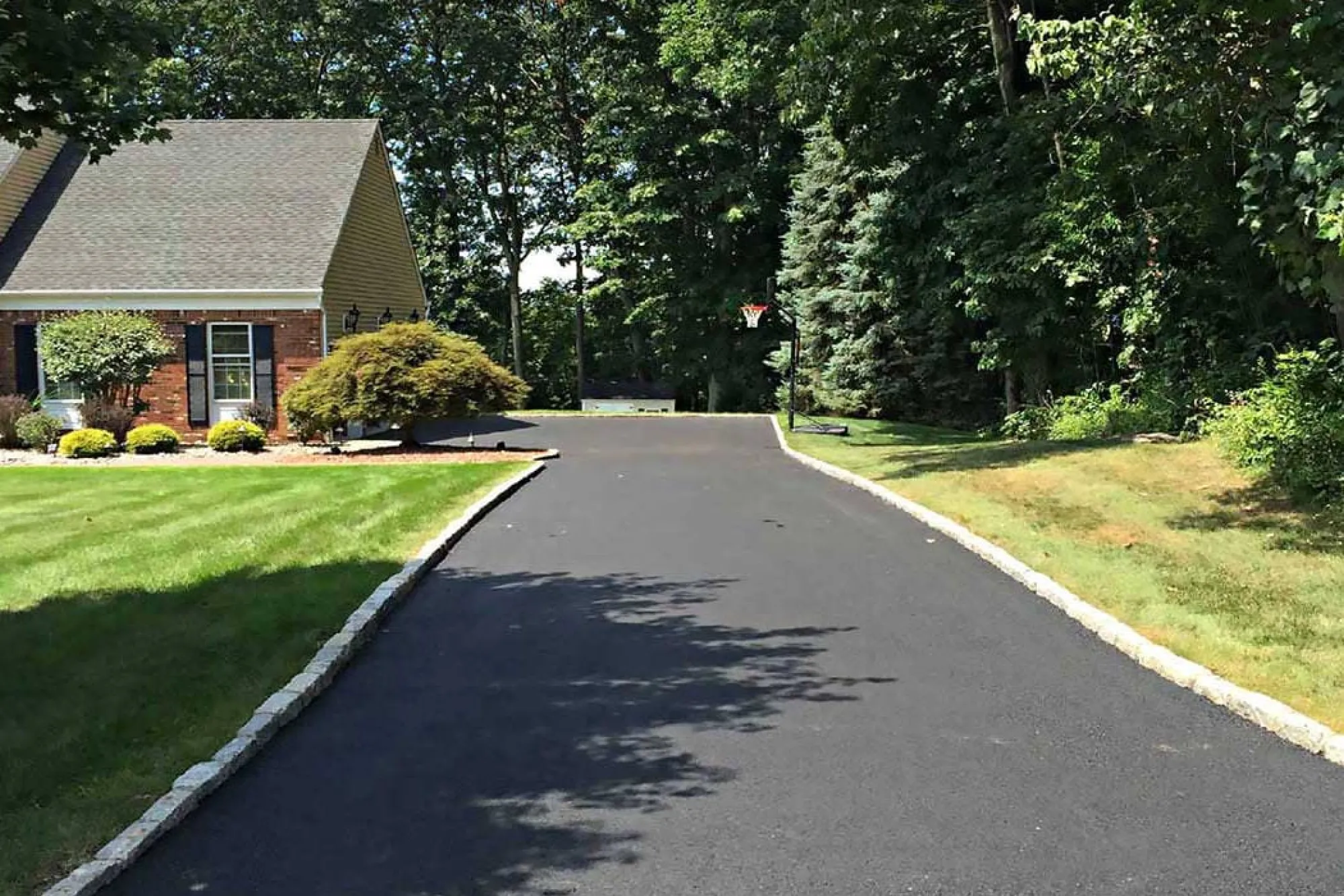Your driveway is more than a path for your car — it’s the welcome mat to your home. The right material not only boosts curb appeal but also affects how well it holds up against weather, traffic, and time. Whether you’re building a new driveway or replacing an old one, making the right choice means weighing factors like cost, longevity, and maintenance.
Factors to Consider Before Choosing
Every material comes with its strengths and weaknesses, so it’s worth breaking things down before making a decision.
- Climate Resistance: Asphalt performs well in colder climates since it can flex with freeze-thaw cycles, while concrete is better in warmer, drier regions.
- Budget: Asphalt is often cheaper upfront, averaging $3–$5 per square foot, while concrete can run $5–$10 per square foot. Pavers vary widely but can go up to $30 per square foot.
- Maintenance: Asphalt needs resealing every 3–5 years, concrete may need joint sealing, and pavers might require occasional leveling.
- Aesthetics: Concrete offers customization with colors and stamping, while pavers provide a high-end, textured look. Asphalt gives a classic, sleek appearance.
Asphalt: Flexible and Cost-Effective
Asphalt remains a favorite for homeowners who want a smooth, blacktop finish at a reasonable price. It’s relatively quick to install and can last 15–20 years with proper maintenance. Its dark color helps melt snow faster in the winter, which is a big plus in snowy regions. On the flip side, it’s more prone to softening in extreme heat and requires periodic sealing.
Concrete: Durable and Customizable
Concrete is known for its long lifespan — often 30+ years — and the ability to be stamped, colored, or textured. It’s incredibly strong but less forgiving with ground movement, meaning it can crack in freeze-thaw cycles if not properly installed. Still, for homeowners wanting a polished look with minimal upkeep, concrete is a solid investment.
Pavers: Premium Looks and Easy Repairs
Brick or stone pavers offer unmatched aesthetics and the easiest repair process — you can replace individual units without disturbing the rest. They’re slip-resistant and can handle heavy loads. The main drawback? The higher price tag and the possibility of weeds growing between the joints if not sealed.
Choosing What’s Right for You
Think about how you use your driveway, your local weather conditions, and how much maintenance you’re willing to take on. For instance, a busy family in a cold climate might lean toward asphalt, while someone in a warm, upscale neighborhood could prefer pavers for their style.
Conclusion
The driveway you choose is a long-term investment, so it pays to compare materials carefully. If you’re ready to explore your options, check out Driveway Paving for classic asphalt solutions, Concrete Paving for unmatched durability, or Driveway Sealcoating to extend the life of your surface. You can also Contact ANS Paving for a free consultation and expert advice tailored to your home.

